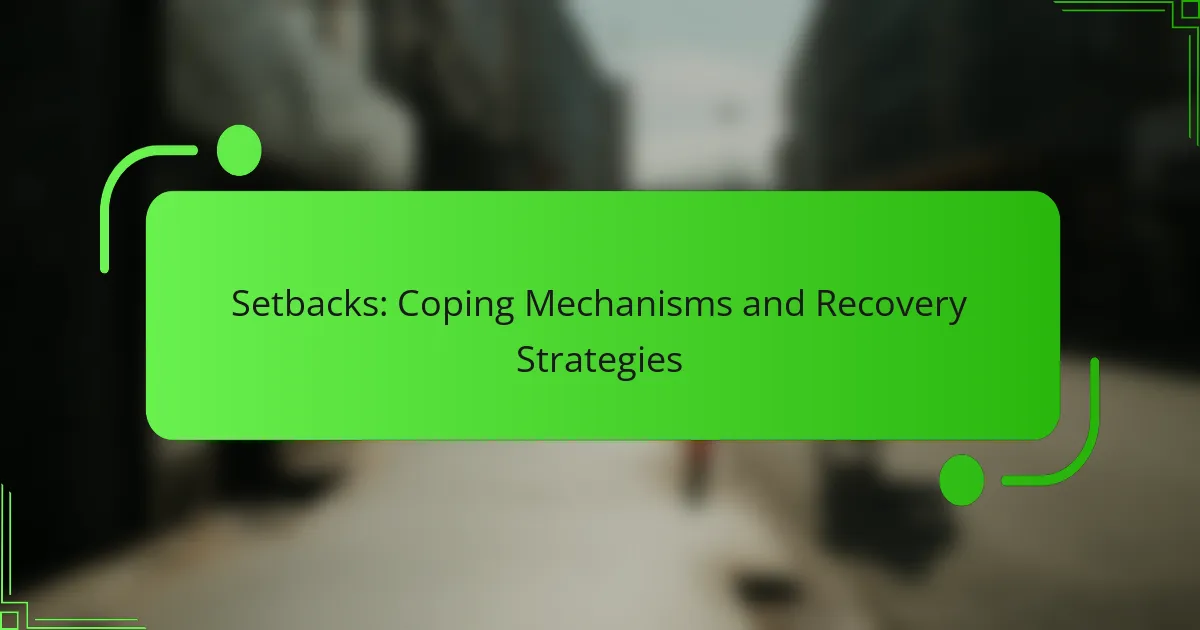Support systems play a crucial role in enhancing both personal and professional growth by providing emotional, social, and practical assistance. They foster resilience, improve problem-solving skills, and create a sense of connection, ultimately leading to better mental health and well-being. Understanding the various types of support systems available can help individuals select the most effective resources tailored to their unique needs.

What are the benefits of support systems?
Support systems provide various advantages that enhance personal and professional growth. They foster emotional stability, improve problem-solving abilities, and offer access to vital resources, ultimately leading to a more resilient and communicative individual.
Enhanced emotional well-being
Support systems significantly contribute to enhanced emotional well-being by providing a network of care and understanding. Individuals with strong support networks often experience lower levels of stress and anxiety, as they have people to share their feelings and challenges with.
For example, friends and family can offer comfort during tough times, helping to alleviate feelings of loneliness. Engaging with a support group can also provide a sense of belonging and validation, which is crucial for mental health.
Improved problem-solving skills
Support systems can lead to improved problem-solving skills by offering diverse perspectives and solutions. Collaborating with others allows individuals to brainstorm ideas and approach challenges from different angles.
For instance, discussing a work-related issue with colleagues can reveal new strategies that one might not have considered alone. This collaborative effort not only enhances creativity but also builds confidence in tackling future problems.
Increased resilience
Increased resilience is a key benefit of having a solid support system. When faced with adversity, individuals with strong networks are more likely to bounce back due to the encouragement and resources available to them.
Supportive relationships provide emotional backing and practical assistance, enabling individuals to navigate difficulties more effectively. This resilience can be particularly beneficial during significant life changes, such as job loss or personal crises.
Better communication
Support systems promote better communication skills by encouraging open dialogue and active listening. Engaging with others in a supportive environment helps individuals express their thoughts and feelings more clearly.
For example, regular discussions with friends or mentors can improve one’s ability to articulate needs and concerns, which is essential in both personal and professional settings. Practicing these skills within a support system can lead to more meaningful interactions outside of it.
Access to resources
Access to resources is another vital benefit of support systems. They often connect individuals to information, tools, and opportunities that may not be readily available otherwise. This can include job leads, educational materials, or mental health services.
For instance, a community support group may provide workshops or seminars that enhance skills relevant to career advancement. Leveraging these resources can significantly impact personal development and overall quality of life.

What types of support systems are available?
Support systems can be categorized into various types, each serving different needs and preferences. Understanding these types helps individuals choose the most effective resources for their situations.
Formal support groups
Formal support groups are structured gatherings often led by trained facilitators, focusing on specific issues such as mental health, addiction, or grief. These groups provide a safe environment for participants to share experiences and receive guidance.
Examples include Alcoholics Anonymous (AA) for addiction recovery and bereavement support groups. These groups typically meet regularly, allowing members to build trust and foster connections over time.
Informal networks
Informal networks consist of friends, family, and colleagues who provide emotional and practical support without a formal structure. These networks are crucial for everyday challenges, offering a sense of belonging and understanding.
To strengthen informal networks, individuals can actively engage in social activities or reach out to loved ones during tough times. Maintaining open communication is key to ensuring these relationships remain supportive.
Community resources
Community resources include local organizations, nonprofits, and services that offer support to individuals in need. These resources can range from counseling services to food banks and housing assistance programs.
Utilizing community resources often requires researching local options, which can be found through online directories or local government websites. Many communities also offer workshops and events that promote well-being and connection.
Online platforms
Online platforms provide virtual support through forums, social media groups, and dedicated websites. These platforms allow individuals to connect with others facing similar challenges, regardless of geographical barriers.
Examples include Reddit support communities and mental health apps that offer resources and peer support. When using online platforms, it’s important to verify the credibility of the information and maintain privacy while sharing personal experiences.

How do support systems improve mental health?
Support systems enhance mental health by providing emotional, social, and practical assistance, which can lead to improved well-being and resilience. These networks help individuals feel connected, reduce stress, and promote healthier coping mechanisms.
Reduction in feelings of isolation
Support systems significantly reduce feelings of isolation by fostering connections with others who understand and empathize with one’s experiences. Engaging with friends, family, or support groups can create a sense of belonging, which is crucial for mental health.
Regular interactions with supportive individuals can alleviate loneliness and provide a safe space for sharing thoughts and feelings. This connection can be particularly beneficial during challenging times, as it reinforces the idea that one is not alone in their struggles.
Encouragement of healthy coping strategies
Support systems encourage the adoption of healthy coping strategies by providing guidance and sharing experiences. When individuals discuss their challenges with supportive peers, they often learn new ways to manage stress and anxiety effectively.
For example, friends may suggest engaging in physical activities, mindfulness practices, or creative outlets as constructive ways to cope. This exchange of ideas can inspire individuals to try different approaches, leading to better emotional regulation and resilience.
Facilitation of professional help
Support systems can facilitate access to professional help by encouraging individuals to seek therapy or counseling when needed. Friends and family can play a pivotal role in recognizing when someone may benefit from expert assistance and can help them take that step.
Additionally, support groups often provide resources and referrals to mental health professionals, making it easier for individuals to find appropriate care. This proactive approach can lead to timely interventions, which are vital for effective mental health management.

What role do support systems play in recovery?
Support systems are crucial in recovery as they provide essential resources, guidance, and motivation. They help individuals navigate challenges, maintain focus on their goals, and foster resilience through shared experiences and encouragement.
Assistance during crises
Support systems offer immediate help during crises by connecting individuals with resources and services. This can include access to mental health professionals, crisis hotlines, or community support groups that provide timely intervention when needed.
For example, someone facing a mental health crisis may benefit from a local support group that meets regularly, offering a safe space to share experiences and receive guidance. Having a reliable network can significantly reduce feelings of isolation and helplessness during tough times.
Encouragement of accountability
Support systems foster accountability by creating an environment where individuals feel responsible for their actions and progress. This can be achieved through regular check-ins, goal-setting discussions, and shared commitments to recovery plans.
For instance, a recovery buddy system can help individuals stay on track by encouraging them to report their progress and setbacks. This mutual accountability can enhance motivation and commitment to the recovery process.
Provision of emotional support
Emotional support is a vital component of recovery, as it helps individuals cope with stress and anxiety. Support systems provide a network of friends, family, or peers who can offer empathy, understanding, and encouragement during difficult times.
Having someone to talk to can make a significant difference. Simple gestures, like listening without judgment or providing reassurance, can help individuals feel valued and understood, ultimately contributing to their overall well-being and recovery journey.

How to choose the right support system?
Choosing the right support system involves understanding your specific needs and evaluating the available options. A well-suited support system can enhance your well-being and provide the necessary resources for personal growth.
Assess personal needs
Start by identifying what you need from a support system. Consider factors such as emotional support, practical assistance, or professional guidance. Reflect on your current challenges and how a support system can address them.
For instance, if you are dealing with stress, you might prioritize emotional support from friends or a counselor. Alternatively, if you need help with a specific task, look for resources that offer practical assistance, like local community services.
Evaluate available options
Research the various types of support systems available to you. These can include family, friends, professional services, or community groups. Each option has its strengths and weaknesses, so weigh them against your assessed needs.
For example, professional counseling may offer structured support but could come with costs ranging from $50 to $200 per session. In contrast, peer support groups are often free and provide shared experiences but may lack professional guidance.
Consider compatibility
Compatibility is crucial when selecting a support system. Ensure that the chosen support aligns with your values, communication style, and comfort level. A mismatch can lead to frustration and ineffective support.
For instance, if you prefer open and honest discussions, a support group that emphasizes confidentiality might not be the best fit. Take the time to engage with potential support options to gauge how well they resonate with your personal preferences.

What are the challenges of support systems?
Support systems face several challenges that can hinder their effectiveness, including resource limitations, communication barriers, and varying user needs. These challenges can lead to inadequate support, decreased user satisfaction, and ultimately, system failure if not addressed properly.
Resource limitations
Resource limitations are a common challenge for support systems, often manifesting as insufficient funding, personnel, or technology. Organizations may struggle to allocate the necessary resources to maintain and improve their support systems, which can result in longer response times and reduced service quality.
To mitigate resource limitations, organizations should prioritize support system investments based on user needs and potential impact. Regular assessments can help identify areas requiring additional resources, ensuring that support remains effective and responsive.
Communication barriers
Communication barriers can significantly impede the effectiveness of support systems. These barriers may arise from language differences, technical jargon, or a lack of clear guidelines for users seeking help. When users cannot effectively communicate their issues, it can lead to frustration and unresolved problems.
To overcome communication barriers, organizations should provide clear, accessible information and training for both support staff and users. Implementing user-friendly platforms and multilingual support can also enhance communication and improve overall user experience.
Varying user needs
Varying user needs present another challenge for support systems, as different users may require different types of assistance. This diversity can complicate the development of a one-size-fits-all support strategy, leading to gaps in service delivery.
To address varying user needs, organizations should adopt a flexible approach to support, offering multiple channels for assistance, such as chat, email, and phone support. Regular feedback from users can help identify specific needs and preferences, allowing for continuous improvement of support services.



